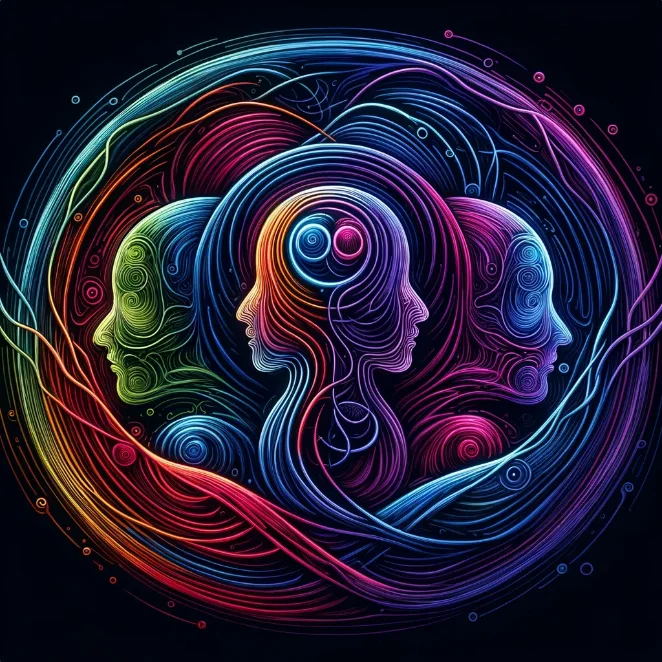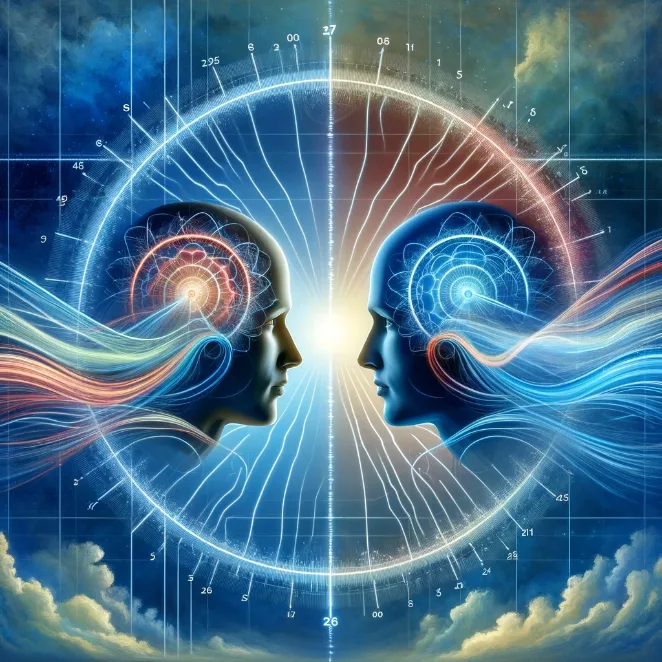
Biorhythms and Birthdays: Intellectual Harmony
The concept of biorhythms suggests that our lives are influenced by natural rhythmic cycles from the moment of our birth. Among these, the intellectual cycle, typically spanning 33 days, plays a crucial role in determining our cognitive abilities, decision-making, and communication skills. This cycle's interplay with our birthday can profoundly impact our relationships, particularly in terms of intellectual compatibility and understanding.
article by Adrian Wallace
Understanding the Fundamentals of Biorhythms
Biorhythms are a concept based on the idea that our lives are influenced by natural rhythmic cycles. These cycles are thought to start from the moment of birth and influence various aspects of our physical, emotional, and intellectual well-being. Typically, three primary biorhythm cycles are recognized: the physical, emotional, and intellectual cycles, each with its own duration and pattern. The physical cycle, lasting about 23 days, affects our physical strength and endurance. The emotional cycle, spanning 28 days, governs our mood and feelings. The intellectual cycle, completing its loop every 33 days, influences our cognitive functions and decision-making abilities. By understanding these cycles, individuals can gain insights into their daily performance and overall well-being.
The Significance of Biorhythms in Daily Life
The significance of biorhythms extends beyond mere theoretical interest; they can offer practical applications in our daily lives. By being aware of the phases of each cycle, individuals can plan their activities to coincide with their personal rhythms. For instance, understanding when one is in a high phase of the physical cycle can be advantageous for engaging in sports or physically demanding tasks. Similarly, knowing the low points of the emotional cycle can help in managing social interactions and emotional responses more effectively. The intellectual cycle can guide when to undertake tasks that require sharp cognitive skills. Moreover, these cycles can also play a crucial role in understanding interpersonal dynamics, particularly in gauging compatibility and harmony in relationships.

Decoding the Intellectual Cycle
The intellectual cycle is divided into two phases: high and low. During the high phase, an individual may experience heightened cognitive clarity, improved decision-making skills, and increased verbal articulateness. This is a time for intellectual pursuits, problem-solving, and effective communication. Conversely, the low phase might bring challenges in these areas, such as difficulty in concentration, indecisiveness, and a lack of mental agility. Understanding this cycle can help in aligning personal and professional tasks with our mental capabilities.
Birthdays and Intellectual Cycle Alignment
When two people's intellectual cycles are aligned – which can be influenced by the proximity of their birthdays – they experience similar phases of mental clarity or fog simultaneously. This synchronization can lead to a natural understanding and a harmonious exchange of ideas, making it easier for both parties to connect on an intellectual level. Shared high phases can be particularly productive and stimulating for joint projects or discussions.

Challenges of Misaligned Intellectual Cycles
Misalignment in intellectual cycles can result in one partner being mentally sharp and articulate while the other may struggle with mental fogginess. This disparity can lead to misunderstandings or frustrations in communication. Being aware of each other's intellectual cycles can foster patience and empathy, allowing couples to support each other through these differing mental states.
Intellectual Cycles in Everyday Life
In everyday life, being cognizant of one's intellectual cycle can enhance effectiveness in activities that require mental focus. For example, scheduling important meetings or brainstorming sessions during a high phase can lead to better outcomes. Similarly, understanding a partner's intellectual cycle can help in choosing the best times for significant conversations or collaborative endeavors.
Edgar and Julie's Synchronized Journey
Edgar and Julie, a couple with closely aligned birthdays, find that their intellectual cycles often synchronize. During their high phases, they engage in lively debates, enjoy intellectually stimulating activities like quizzes or strategy games, and often collaborate on creative projects. This shared mental clarity not only enhances their personal bond but also contributes to a dynamic and engaging relationship.

The intellectual cycle's interplay with our birthdays offers a fascinating perspective on the rhythms of our mental abilities and how they influence our relationships. By understanding and respecting these natural cycles, individuals and couples can better align their activities and interactions for greater harmony and productivity. In the dance of life, being attuned to our own and our partner’s intellectual rhythms can lead to more fulfilling and understanding partnerships.
Published: 11/13/2023
Modified: 11/13/2023
More predictions
Come back here soon to learn more about yourself and your future





